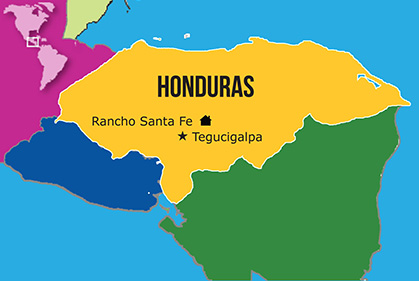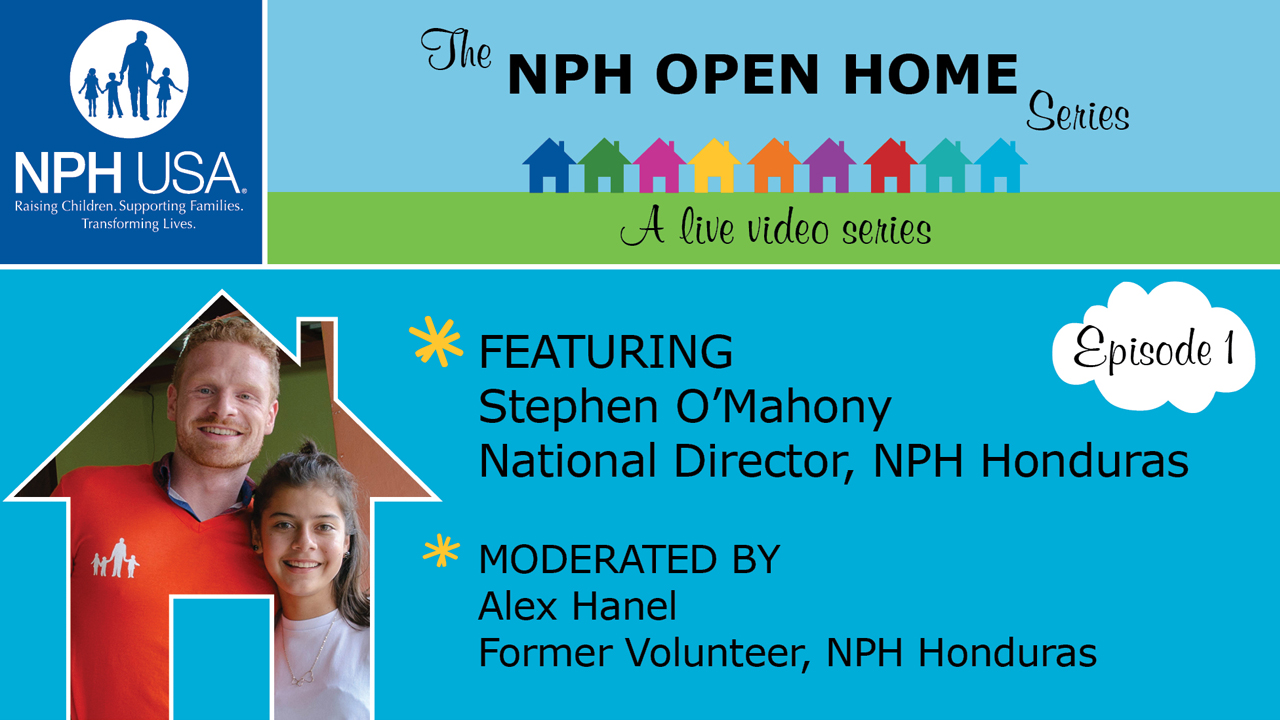Our Homes: NPH Honduras
 Honduras Facts
Honduras Facts
Area:
43,278 square miles – slightly larger than Tennessee
Population:
9,529,188 (2024 est.)
Languages:
Spanish, Amerindian dialects
Issues:
One of the poorest countries in Latin America – more than half of the population lives in poverty; has one of the world’s highest murder rates; pollution of Lago de Yojoa (the country’s largest source of fresh water); frequent, but generally mild, earthquakes; extremely susceptible to damaging hurricanes and floods along the Caribbean coast
NPH Honduras at a Glance
Opened:
November 4, 1985
Location:
Rancho Santa Fe is one hour northeast of Tegucigalpa
NPH Operates:
Family-style home, school (grades K – 9), medical clinic, farms, vocational workshops, special homes for severely disabled children and elderly adults
Community Programs include economic empowerment program for community youth, a temporary home for at-risk children, a daycare center for working mothers, a soup kitchen
in the nearby town of Talanga, and the San José Family Center
2023 Impact
908 children and adults supported
273 local people employed
145 K – University graduates
Did you know?
- Marlon Velásquez, NPH Nicaragua’s National Director, is an Hermano Mayor (“Older Brother”), who was raised at NPH Honduras.
- Rancho Santa Fe, the main home, is a vast wooded oasis in the hills – a metropolis in comparison to the surrounding quiet pueblos.
- To meet the needs of the physically impaired, vital improvements have been made, such as remodeling five homes, constructing wheelchair accessibility paths/ramps, and expanding their therapy services.
- Approximately 27% of all the food eaten in the home is grown or produced on the ranch, including 60% of meat, 10% of fruit and
vegetables, and 100% of the milk and dairy products. - Casa Eva at Rancho Santa Fe (the main site) is home to elderly adults who have no family to care for them.
- Older youths study and live in Tegucigalpa.
- Casa de los Ángeles in Tegucigalpa provides a loving home and round-theclock care to severely disabled children.
- Casa Mi Esperanza in Catacamas provides a temporary home for at-risk children while a safe and permanent living situation is found.
- Pasos Pequeñitos in a residential neighborhood of Tegucigalpa provides education, therapy, and nutrition for children up to age 8 whose single parents are working or furthering their education.
- The NPH OneFamily program reintegrates and supports youth from the NPH home who are now able to live with their biological families.
- San José Family Center in Mata de Plátano provides vulnerable children, adolescents, and families with tutoring, therapies, youth
empowerment, healthcare, and nutritional assistance. - Holy Family Surgery Center provides outpatient services for NPH children and the rural poor as well as medical training.
More Information:
• VIDEO: NPH Honduras – A Glimpse at Family Life
• Holiday Celebrations at NPH Honduras
• Fact Sheet (PDF)
• Home Map (PDF)
• Visitor’s Guide (PDF)
• NPH OneFamily Program
 Full Episode Recordings:
Full Episode Recordings:
How to Help:
• Sponsor a child
• Support the NPH Honduras home with a Mi Casa! Sponsorship
• Donate now
Learn about the other NPH homes:
Bolivia | Dominican Republic | El Salvador | Guatemala | Haiti | Honduras | Mexico | Nicaragua | Peru







